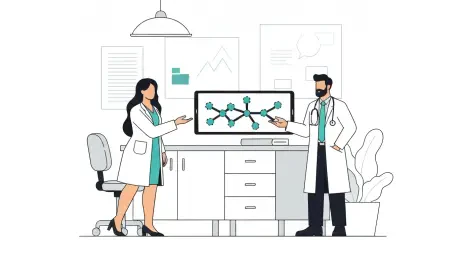
Harnessing the immense chemical complexity of the natural world through the lens of artificial intelligence is fundamentally reshaping the landscape of modern medicine and biotechnology. This review explores the evolution of this approach, its key technological components, recent clinical

For families grappling with the hereditary specter of Huntington's disease, the certainty of a genetic diagnosis has always been shadowed by a profound and distressing uncertainty about when its devastating symptoms will begin. This devastating neurodegenerative disorder, caused by a known mutation

Within the dense, jargon-filled lines of a patient's medical chart, the earliest signs of cognitive decline may be hiding in plain sight, often too subtle for even the most diligent clinician to detect during a routine appointment. These faint signals, scattered across years of notes, represent a

In the digital age of medicine, clinicians are paradoxically drowning in an ocean of patient data while simultaneously thirsting for clear, actionable insights at the point of care. The emergence of AI-Powered Chart Review represents a significant advancement in the healthcare technology sector,

The convergence of advanced computational intelligence with molecular biology has fundamentally altered the paradigm of vaccine development, shifting it from a process of slow, empirical discovery to one of rapid, data-driven design. The application of Artificial Intelligence (AI) in this field

A landmark clinical analysis has provided compelling evidence that the future of oncology may be found within the very code that fuels the disease, demonstrating that treatments personalized to a tumor's unique genetic profile can dramatically improve patient outcomes. This pivotal research